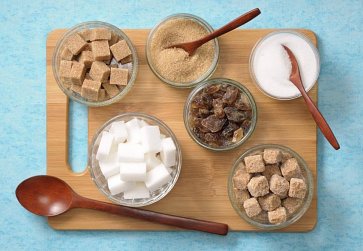News
20 March 2015
Response to the BBC's programme The Truth About Sugar

Journalist Fiona Phillips looked at the facts and fiction behind sugar in the BBC programme The Truth About Sugar (aired 19 March 2015).
Sharon Fisher, Communications Manager, AB Sugar
“We watched with interest last night’s programme and welcome the efforts to inform and educate consumers on the properties of sugars and the role they can play as part of a healthy, balanced diet.
As ‘The Truth About Sugar’ highlighted, the current conditional recommendation from the World Health Organisation (that 'free sugars'* make up no more than 5% of total energy intake) can be very difficult to achieve, and as the WHO themselves acknowledge is based on science which could be described as weak. However, we were surprised to see a lack of distinction, throughout the programme, between 'sugar' and 'sugars', which can be misleading and confusing for consumers, who may not realise that sugars take many forms beyond commonly recognisable table sugar.
We were also disappointed to see the programme suggest that certain sugars are better than others as the body doesn’t distinguish between sugars used in manufacturing or in the kitchen, and those sugars found naturally in fruits and vegetables. For example, sucrose in an apple is broken down in exactly the same way as the sucrose in your sugar bowl.
It also is misleading to suggest that sugars can be measured in spoonfuls, when many sugars are naturally occurring in products themselves, for example in the fruit of the tomato ketchup that was referenced in last night’s programme.
Sugars have no more calories than any other ingredient. On a gram for gram basis, sugars and starch, as well as protein, contain similar amounts of calories per gram, while fat actually contains more than twice as many - a distinction that wasn't made in the programme.
It is also important to point out that sugars cannot be 'hidden' as all sugars are listed on the nutritional label of food and drink products in the UK. We do appreciate, however, that some consumers may find labelling confusing and that is why it is important to educate everyone to help them better understand what constitutes a healthy, balanced diet. It is crucial to look at your total calorie intake, rather than focusing on a single ingredient, and understand that it's just as important to think about your physical activity levels as well as what you are consuming."
* Added sugars (also known as free sugars) are those used in manufacturing or added by the cook or consumer. Naturally occurring sugars are those found naturally in a product e.g. fruit or vegetables.
The WHO recommendations can be found here.















